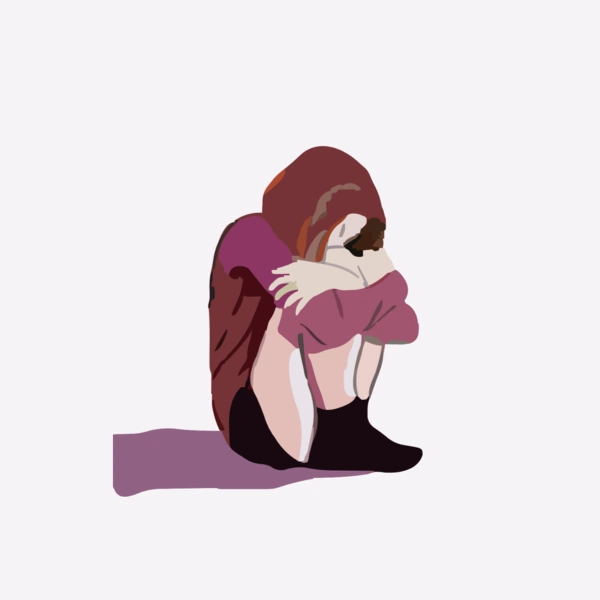Guide to PTSD Claims and Compensation Payouts for PTSD
Winning Compensation Claims for PTSD Payouts
In Australia, people often claim PTSD compensation payouts when they suffer a PTSD injury from an accident, a workplace incident, or from having a traumatic experience.
You might be owed a PTSD insurance payout, depending on how you were psychologically harmed, which can help pay for your medical expenses and replace lost income. Our guide to claiming PTSD insurance compensation outlines everything you need to know to make the most of your disability insurance claims.
At Aussie Injury Lawyers, it’s free to know your right to claim and the value of your compensation payout. Start now by calling 1300 873 252
Compensation Payouts for PTSD
A traumatic event can cause post-traumatic stress disorder (PTSD), which is a psychiatric disorder. The DSM-5 defines PTSD as the existence of at least one symptom from three clusters: reexperiencing, avoidance and hyperarousal. The symptoms must be present for more than one month after the trauma and cause significant distress or impairment in functioning. Insufficient or ineffective treatment can severely impact the sufferer’s well-being. A trauma-related psychological illness will typically compromise your home and work life.
If you have a PTSD disorder affecting your ability to work, you could successfully claim TPD insurance benefits or income protection insurance payments.
It’s free to know if you can claim. For expert advice, Call Now – 1300 873 252 or email us >
How PTSD can alter your daily life
PTSD is a mental ailment that affects people who have experienced or witnessed traumatic events. It’s not uncommon for someone to acquire it following significant trauma, like the death of a loved one, being in an accident, or witnessing violence.
The symptoms of PTSD are similar to those of anxiety disorders and depression but tend to be more intense. Surviving a traumatic incident like a motor vehicle accident can escalate other developing psychological injuries like:
√ Substance abuse issues
√ Dysfunctional eating
√ Suicidal feelings
Can I work with PTSD?
Your PTSD symptoms will alter over time and likely escalate when you experience a triggering event, like a sound, place, story, smell etc. The capacity to work in your usual occupation will depend on a few factors, including:
- The severity of the symptoms
- How long your symptoms persist
- The nature of your job role
- How you acquired your mental health disorder
For example, if your psychiatric ailment resulted from a workplace incident, you would likely not return to your usual occupation. For people employed as first responders or police officers, your job has a higher-than-normal risk of PTSD, and hence, you would probably not go back to work once you become mentally ill.
People who have post-traumatic stress disorder (PTSD) may face some challenges on the job, like:
- Trouble concentrating
- Memory loss
- Unpredictable emotions
- Flashbacks
- Trouble maintaining connections with colleagues
When your mental disorder prevents you from working in your regular occupation, you could claim TPD insurance benefits through your superannuation fund. It’s free to know if you are eligible and what your claim is worth.
Is PTSD a disability in Australia?
Your psychiatric health issue could be recognised as a disability, depending on its severity and impact on your life. Internationally, The United Nations Convention on the Rights of Persons with Disabilities defines mental illness disability as a long-term condition that prevents you from effectively contributing to society.
In Australia, you will not qualify for NDIS funding simply by being diagnosed with a psychological illness. Your condition must be severe and long-term. The NDIS scheme recognises different types of ailments, such as:
- Mental health conditions
- Psychosocial disability
- Mental impairment
Once diagnosed with a recognised serious and lengthy psychiatric condition like PTSD, you may be eligible for a range of disability benefits.
However, to claim TPD or income protection insurance entitlements, the definition of disability relies on the terms of your insurance policy. Each insurer has its specification for how to qualify for a successful disability claim, and it is more straightforward than you might expect.
Aussie Injury Lawyers have a combined insurance litigation experience of more than 100 years with a 99% success rate. We regularly negotiate settlements with all the major Australian insurance companies, so we know their expectations and what it takes to win your claim.
What disability benefits can I get for PTSD?
If you qualify under the conditions of Services Australia, you could receive a disability support pension for your trauma-related psychological illness. Alternatively, Centrelink may pay income benefits if you fail to meet their requirements.
When military service is the source of your psychiatric harm, it is possible to claim compensation through the Department of Veteran Affairs (DVA).
Another option is to claim either a TPD lump sum payout or regular TTD payments if you have TPD or income protection insurance coverage. With Aussie Injury Lawyers, knowing your right to claim costs nothing.
For your free claim assessment Call 1300 873 252 or email us >


How much is my PTSD Compensation worth?
It’s complicated to know the value of your PTSD insurance benefits, primarily because you may be eligible to make several claims. Many Aussies have contributed to several superannuation funds during their lifetime. Each super account can contain multiple insurance policies with differing entitlements. You might also have insurance attached to union memberships, association memberships and other external providers.
It is common for TPD claims to be between $50k and $500k, while the value of income protection payments will depend on your current salary and the time you are away from work. Some fortunate people with several superannuation accounts can make more than one TPD claim.
Free Claim Investigation
Our personal injury lawyers will investigate your insurance coverage, the terms of your policies, and their value free of charge. We will let you know the following:
- How many insurance claims you can make
- The value of these claims
- Your chance of success
- Our fixed legal fees if you wish to proceed
All our legal services are on a 100% No Win, No Fee basis, so you only pay costs when you win and nothing if you lose. It’s the Aussie Injury Lawyers’ No Financial Risk Guarantee.
Can I Make a TPD Claim for PTSD?
You can seek to access your total and permanent disability (TPD) payout when your mental condition prevents you from working in your regular occupation. Unlike other personal injury claims, how you acquired your psychiatric illness does not matter. To succeed, a medical professional must provide objective evidence proving you cannot work in your regular job, addressing the disability definition of your insurance policy. In most cases, you do not need to show you can’t be employed in any job role, just your normal position or one for which you have training.
For a successful PTSD TPD claim, you must meet these conditions:
- You are unable to work in your regular job because of your mental disorder.
- You have already ceased work due to your psychological injury.
- You were younger than 65 years old when you stopped employment.
- An eligible TPD insurance policy was in place when you stopped work.
You can be confirmed as having a total and permanent disability when you stop working for an extended period. Be aware that time limits may apply to access your entitlements, so seek informed legal advice for your options as soon as possible.
A no win no fee lawyer with a 99% success rate for claiming TPD compensation benefits will advise if you can make a PTSD claim for free.
Can I make a PTSD Income Protection Claim?
Many Aussies have income protection insurance in their superannuation account. People often don’t know they have multiple disability insurance coverages through their superannuation fund or private insurance. You may be eligible for income replacement benefits (TTD payments) when you take temporary work leave due to a mental injury.
In this case, you would need a professional medical assessment and meet the criteria and illness definitions in your policy terms. Typically, insurance companies will attempt to minimise or deny your claim, so your best bet for success is to get legal help from experienced personal injury lawyers. With AIL, you pay nothing unless we win your case, so you have no financial risk.
What are the four main types of PTSD?
People living with post-traumatic stress disorder (PTSD) often have constant feelings of excessive fear and panic, just like they did when they were experiencing their trauma. The four main kinds of psychological response include:
Upsetting memories of your trauma cause flashbacks, including recurring nightmares of the incident.
- Being excessively aware of risks, including:
- Always on guard
- Problems sleeping and concentrating
- Aggressive and irritable behaviour
- Feelings of embarrassment or guilt
Actively evading thoughts, events, people or places that trigger reminders of your incident.
- No longer interested in pursuits you previously enjoyed
- A feeling of detachment from people around you
- A constantly numb emotional state
- Negative thoughts for you, your life, and your future
Post Traumatic Stress Disorder Risk Factors
Approximately 12% of Australians will live with PTSD at some point. This medical disorder can impact you at any age, but some circumstances make it more likely you will get PTSD following exposure to a distressing incident, like:
- Living with trauma for an extended period
- Early life trauma – during your childhood
- The disturbing incident had intent
- Your work exposes you to traumatic events
- Having an existing mental injury
- Excess alcohol or drug use
- Being on your own for extended periods
- Family history of mental illness
What should I do if I have a PTSD injury?
First, seek professional medical help for PTSD treatment. Emergency medical assistance can be a lifesaver when you have lived through a traumatic event that has harmed your mental state. Your doctor, psychologist or psychiatrist will assess your condition and develop a treatment plan. Their medical records will be crucial to the success of any legal claims you may make in the future.
Some commonly recommended recovery steps include:
√ Adhere to your mental health treatment plan; regularly check in with your medical provider and follow their recommendations.
√ Educate yourself about your illness. Knowing your emotions can help create coping mechanisms.
√ Look after yourself; lots of sleep, a good diet and some exercise increase your overall well-being.
√ Be proactive; distract yourself with other activities you enjoy.
√ Resist self-medicating; while it might seem like drugs or alcohol might help your cope, they are known to escalate your condition.
√ Be connected; spending time with your loved ones can help you feel supported.
√ Join a support organization; you will feel connected when networking with people living with PTSD.
√ Speak with an experienced illness and injury lawyer to know where you might access funds to support your life while rehabilitating.
Expert Legal Advice for PTSD Claims
Aussie Injury Lawyers are your premier choice for winning TPD and income protection for PTSD and other mental health conditions. Our friendly legal team love to help, and you pay nothing to know if:
√ You have one or more insurance claims
√ What is the worth of your PTSD compensation claim
√ Your chance of winning a lump sum payout
√ Our fixed legal fee for helping you succeed
Give yourself your best chance of success by contacting an experienced personal injury lawyer for a comprehensive free claim assessment. Call now on 1300 873 252 or email us >





